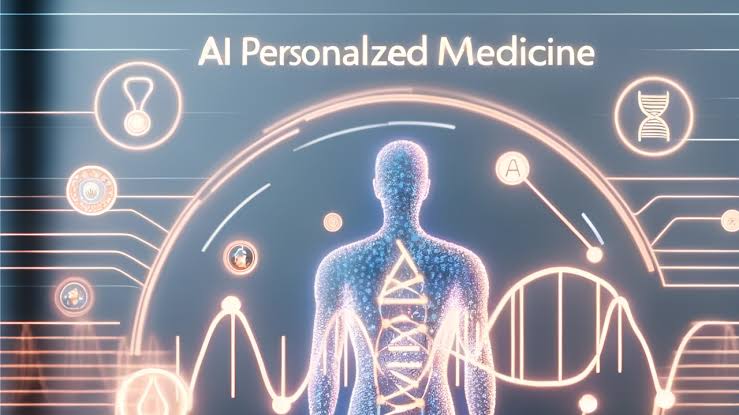Artificial Intelligence (AI) has made significant strides across various industries, and healthcare is no exception. AI's integration into healthcare has the potential to revolutionize the way we approach diagnosis, drug discovery, and personalized medicine. By leveraging machine learning, neural networks, and big data analytics, AI offers unprecedented opportunities to enhance patient outcomes, streamline processes, and reduce costs. This article delves into the transformative impact of AI in healthcare, particularly in the areas of diagnosis, drug discovery, and personalized medicine.
AI in Medical Diagnosis
AI's ability to analyze vast amounts of data quickly and accurately makes it an invaluable tool in medical diagnosis. Traditional diagnostic methods often rely on the subjective judgment of healthcare professionals, which can sometimes lead to errors or delays. AI can augment human capabilities, providing more precise and timely diagnoses.
Enhancing Diagnostic Accuracy
One of the primary benefits of AI in diagnosis is its potential to improve accuracy. Machine learning algorithms can be trained on extensive datasets, including medical records, imaging studies, and genetic information, to identify patterns and correlations that may not be apparent to human clinicians. For instance, AI systems can analyze medical images, such as X-rays, MRIs, and CT scans, to detect anomalies with a high degree of precision. Studies have shown that AI can match or even surpass human radiologists in identifying conditions like cancer, fractures, and neurological disorders.
Speeding Up Diagnostic Processes
AI can also expedite the diagnostic process. In many cases, obtaining a diagnosis involves multiple tests and consultations, which can be time-consuming. AI-powered tools can streamline these processes by providing instant analysis and preliminary results. For example, AI algorithms can quickly interpret blood tests and other laboratory results, enabling faster decision-making and treatment initiation.
Reducing Diagnostic Errors
Diagnostic errors can have serious consequences for patient outcomes. AI's ability to cross-reference patient data against vast databases of medical knowledge reduces the likelihood of errors. By flagging potential misdiagnoses or overlooked conditions, AI systems can act as a safety net for healthcare providers. This not only enhances patient safety but also boosts confidence in diagnostic decisions.
AI in Drug Discovery
The drug discovery process is notoriously complex, time-consuming, and expensive. AI has the potential to revolutionize this field by accelerating research, identifying new drug candidates, and predicting their efficacy and safety. This can significantly reduce the time and cost associated with bringing new drugs to market.
Accelerating Research and Development
AI can analyze vast datasets of chemical compounds, biological targets, and clinical trial results to identify potential drug candidates. Machine learning algorithms can predict how different compounds will interact with biological targets, streamlining the initial stages of drug discovery. This allows researchers to focus their efforts on the most promising candidates, reducing the need for extensive trial-and-error experimentation.
Identifying New Drug Candidates
One of the most exciting applications of AI in drug discovery is its ability to identify novel drug candidates. By analyzing existing drugs and their mechanisms of action, AI can propose new compounds that might be effective against various diseases. For example, AI has been used to identify potential treatments for rare diseases, which often receive less attention in traditional drug discovery efforts. Additionally, AI can repurpose existing drugs for new indications, expanding their therapeutic potential.
Predicting Drug Efficacy and Safety
Predicting how a new drug will perform in humans is a critical aspect of drug development. AI can model and simulate the effects of drug candidates on biological systems, helping researchers anticipate potential side effects and efficacy issues. This reduces the reliance on costly and time-consuming animal and human trials. By predicting adverse reactions and optimizing dosage levels, AI can enhance the safety and effectiveness of new drugs, ultimately benefiting patients.
AI in Personalized Medicine
Personalized medicine, also known as precision medicine, aims to tailor treatments to individual patients based on their genetic makeup, lifestyle, and other factors. AI plays a crucial role in making personalized medicine a reality by enabling the analysis of complex datasets and providing actionable insights for customized treatment plans.
Tailoring Treatments to Individual Patients
AI can analyze a patient's genetic information, medical history, and lifestyle factors to identify the most effective treatments. This personalized approach ensures that patients receive therapies that are specifically suited to their unique characteristics.
